Veganism has fast been on the rise over the past decade. With words like Veganuary, Meatless Mondays, and Flexitarian becoming the norm, it’s clear to see that plant-based living is on the increase. Whether more of us are adopting a fully vegan lifestyle or are just simply reducing the amount of animal products that we consume, there is now more of a demand than ever for plant-based alternatives.
With so many meat-free options now available, food shopping can easily become a minefield. Be careful not to be fooled by clever marketing. Heavily processed foods have been proven to have a negative impact on our health, irrespective of whether it contains animal products or not. So just because something is labelled as vegan, doesn’t necessarily mean that is it healthy! When searching for a meatless alternative, ask yourself: “what is it that you are wanting to replace?” Are you looking for a something with a meaty flavour or texture? Or to substitute the protein? When choosing a vegan alternative I recommend opting for a trusted whole-food which has been eaten by our ancestors for centuries. Many mock-meats have long lists of unrecognisable ingredients which look more like they have been produced in a chemical lab than grown in a field. So my best advice when choosing a meat-free alternative is that if it has required sunlight, fresh air and water to grow it is probably a perfect option! With that in mind here are my top 15 foods that you can substitute for meat.
affiliate links – please read my disclosure here
WHOLE PLANT-BASED MEAT SWAPS
SOY OR SOYA
- When purchasing soya products choose only organic as non-organic soya is one of the top GM crops and has been linked to negative health implications.
- Soya beans are a complete protein, meaning that they contain all nine of the essential amino acids.
- Enjoy pure soya in its whole form and avoid ultra-processed soya “Frakenfoods”.
1. TOFU
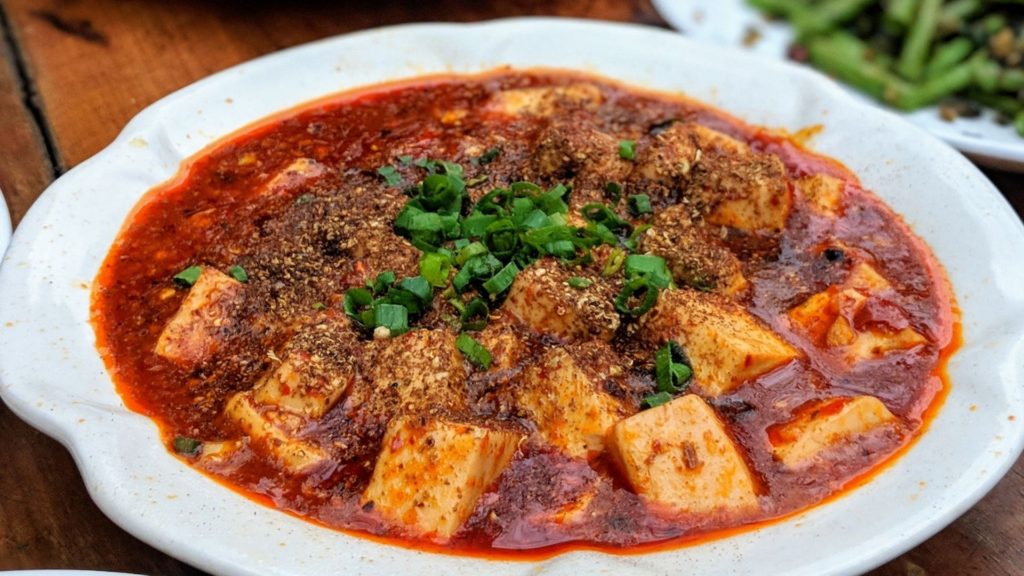
Tofu has been a part of western vegetarian diets for decades but it has been eaten in Asian cultures for centuries, originating from China. Tofu is made from soya beans. It is made in a similar way to how we produce cheese, soya milk is coagulated and the curds are then pressed into blocks. The texture of tofu is quite soft, it has a bland taste so lends itself to strong flavours well.
High in protein tofu can be steamed fried or baked. Use in chunks or strips in place of meat in stews, stir-fries, curries and salads or crumbled in similar ways to how you would use eggs or cheese.
NUTRITIONAL INFORMATION PER 100g Brand: Tofoo
CALORIES: 123kcal CARBOHYDRATE: 2.9g PROTEIN: 12.6g FAT: 6.9g FIBRE: 0.9g
2. TEMPEH
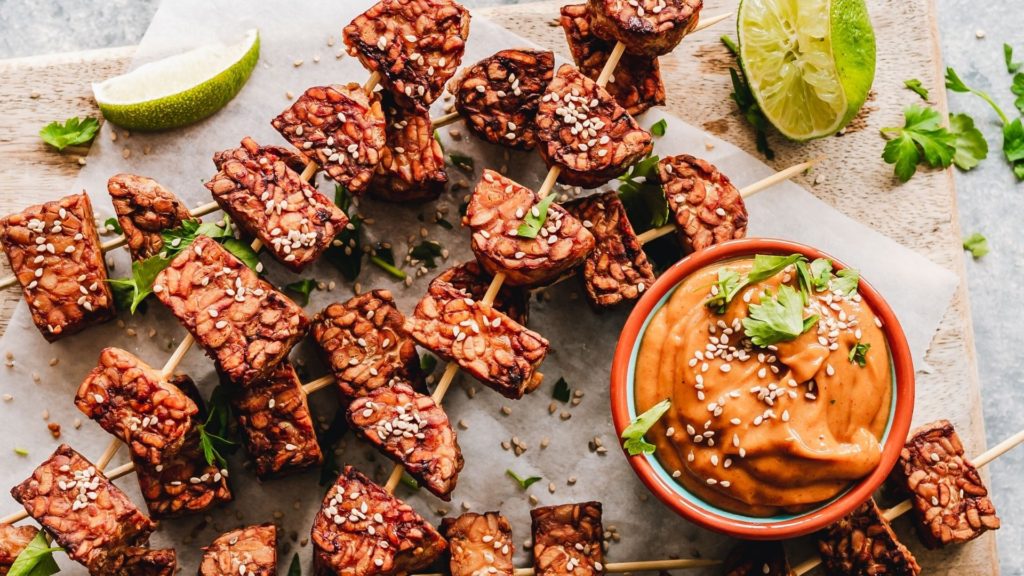
Tempeh may seem like a trendy new vegan food in the western world, but, like tofu, has been part of Asian meals for centuries, originating from Java in Indonesia. Tempeh is made from fermented soya beans and pressed into what is also known as soybean cakes. Tempeh is made from the whole soya bean, unlike tofu which is made from soya milk, making tempeh higher in protein than tofu. Tempeh is firm in texture and has a bland but slightly nutty flavour and takes on strong flavours well.
Tempeh can be used as a direct swap for meat and is usually marinated or seasoned before baking, steaming or sauteed. Extremely versatile tempeh can be used in many meals from one pot dishes to burgers. Popular seasonings include: Smokey BBQ, Jamaican Jerk and Teriyaki.
NUTRITIONAL INFORMATION PER 100g Brand: Tofoo
CALORIES: 208kcal CARBOHYDRATE: 1.8g PROTEIN: 21.3g FAT: 10.9g FIBRE: 6.1g
3. EDAMAME
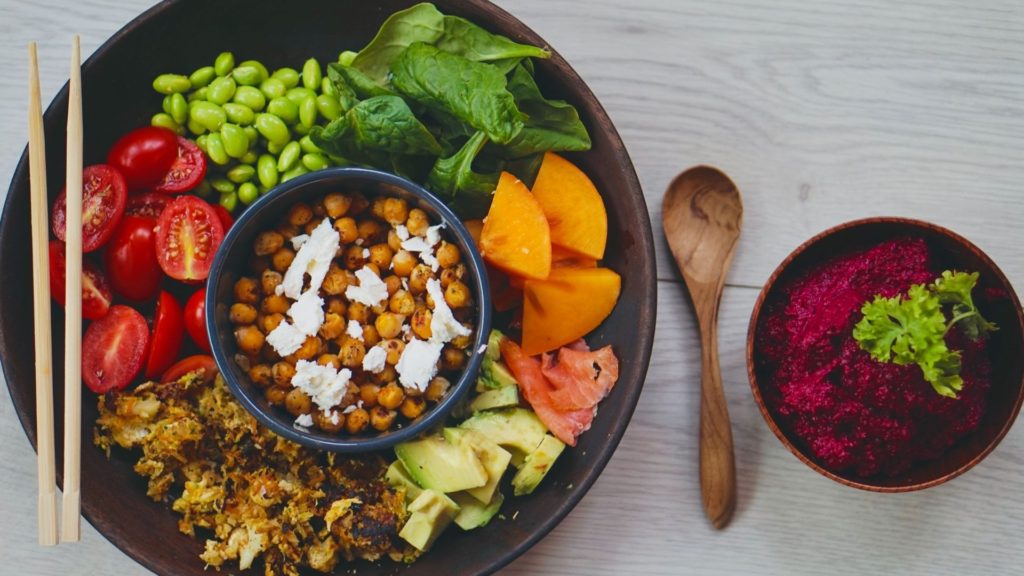
Edamame beans are young green soya beans. Again a traditional Asian food, edamame beans are gaining popularity among the Western world. Legumes are known for being a great vegan protein source. However, edamame could have the edge when it comes to a meat alternative as it is classed as a complete protein, unlike any other bean. Edamame has a sweet and slightly grassy taste and must be cooked before eating, enjoy in a similar way to how you would beans.
Edamame can be bought fresh, frozen, dried or tinned. Use hot or cold topped on salads, in soups, stews, rice or noodle dishes, as a side dish like peas or simply as a nutritious snack. There are also edamame based wheat-free pastas available.
NUTRITIONAL INFORMATION PER 100G
CALORIES: 141kcal CARBOHYDRATE: 3.6g PROTEIN: 12.9g FAT: 6.6g FIBRE: 7.9g
Purchase organic edamame spaghetti or fettuccine pasta here.
LEGUMES
4. LENTILS
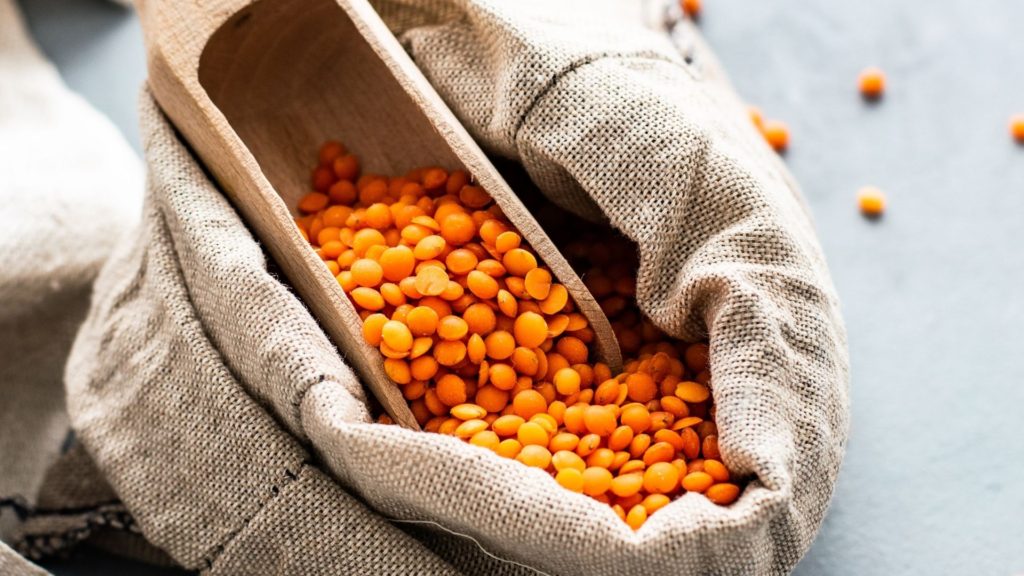
Lentils have long been a trusted vegan stand-in. There are many different varieties of lentils including: brown, green, red, yellow beluga and puy. Lentils include 25% protein and are also a good source of B vitamins and iron. Raw lentils are quick to cook, taking between 5-20 minutes and do not require pre-soaking like other pulses. Alternatively, you can purchase tinned lentils which are pre-cooked and can prove a more convenient time-saver. Both are easy and affordable options.
Lentils can be used a direct exchange for minced beef in most recipes, such as lasagne, spaghetti Bolognese, cottage pie, shepherds pie, meatballs or meatloaf.
NUTRITIONAL INFORMATION PER 100g Beluga Lentils – Brand: Biona
CALORIES: 94kcal CARBOHYDRATE: 14.0g PROTEIN: 6.0g FAT: 0g FIBRE: 7.0g
Purchase organic tinned beluga lentils here.
5. CHICKPEAS
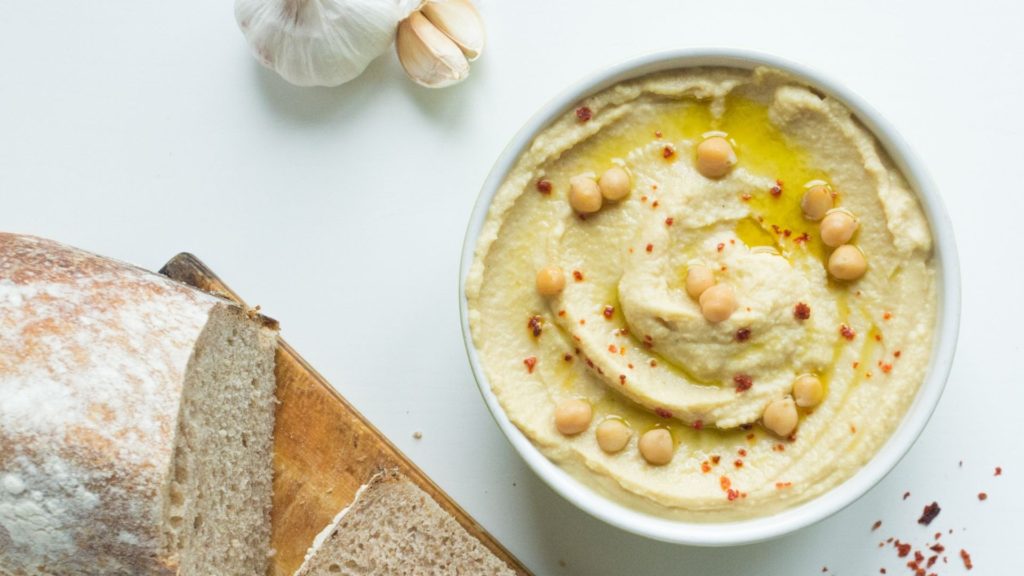
Chickpeas, also known as garbanzo beans, are a very versatile legume and have been eaten in the Middle East for centuries. Chickpeas are a good source of protein, B vitamins and iron and can be used in a variety of ways.
Falafels have long been popular in Greek dishes and can be used in place of meatballs. Hummus has gained in popularity, with now a huge variety of flavours available, great in salads and wraps, or as a dip with crudites, or as you would in place of a meat pate spread on toast. Chickpeas can be used in their whole form in stews and curries or used to form burgers or patties.
NUTRITIONAL INFORMATION PER 100g Brand: Biona
CALORIES: 131kcal CARBOHYDRATE: 16.6g PROTEIN: 6.4g FAT: 2.6g FIBRE: 7.6g
Purchase organic tinned chickpeas here.
6. BEANS
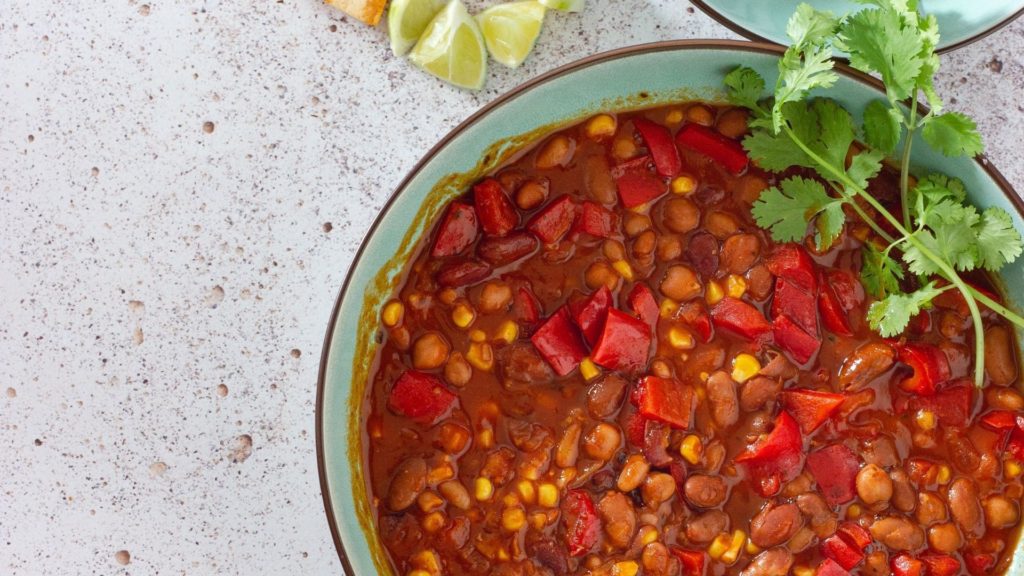
Black beans, butter beans, haricot beans, kidney beans and so on, are starchy carbohydrates that have been cultivated for thousands of years. Beans are an affordable and convenient option as they offer a good plant-based source of protein and are packed with fibre. Dried beans will require several hours of soaking before cooking, however, tinned varieties are pre-cooked and can provide a super simple alternative.
Beans can be used in a variety of ways from one-pot dishes, such as soups or stews, stuffed in tacos or baked sweet potatoes, to forming burgers or meatless balls. Beans work well as a substitute for minced meat. Try swapping beef for a selection of beans in Mexican Bean Chilli.
NUTRITIONAL INFORMATION PER 100g Black Beans – Brand: Biona
CALORIES: 72kcal CARBOHYDRATE: 8.0g PROTEIN: 5.3g FAT: 0.6g FIBRE: 6.9g
Purchase organic tinned black beans here.
NUTS AND SEEDS
7. HEMP SEEDS
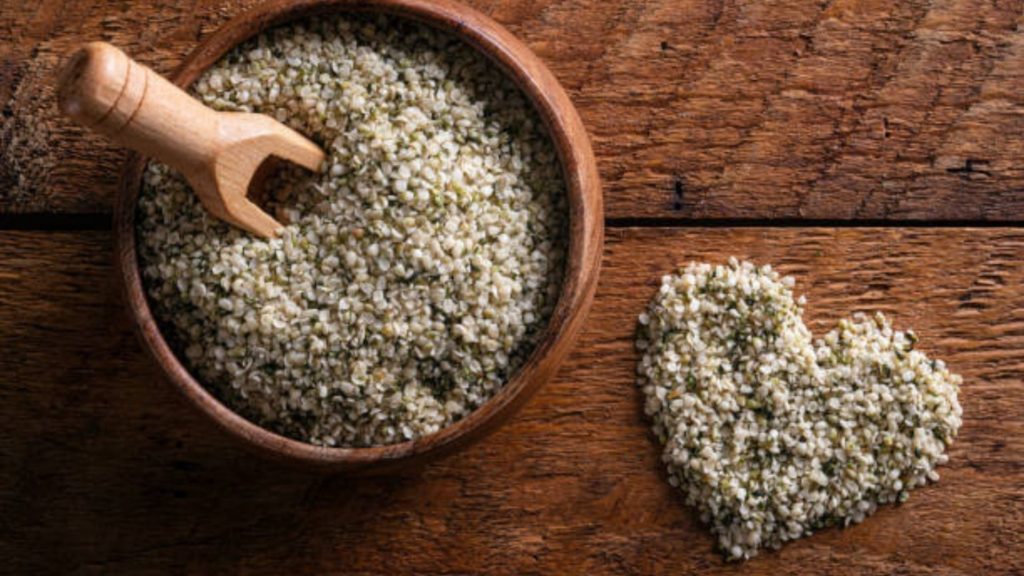
Hemp seeds, also known as hemp hearts, are known for being related to the cannabis plant. However, unlike marijuana, hemp seeds only contain trace amounts of THC, so do not cause psychoactive effects like cannabis. Hemp seeds are exceptionally nutritious and are a great source of omega-3 fatty acids and iron.
While hemp seeds may not seem like a direct meat substitute they are outstanding as one of the few plant sources of complete proteins, meaning that they contain all nine of the essential amino acids. If using a low protein meat alternative, add hemp seeds to balance out your meals macro-nutrients. Simply stir into warm dishes or sprinkle on top of salads to add that vital protein.
NUTRITIONAL INFORMATION PER 100g
CALORIES: 598kcal CARBOHYDRATE: 3.5g PROTEIN: 32.3g FAT: 45.5g FIBRE: 5.4g
Purchase organic shelled hemp seeds here.
8. WALNUTS
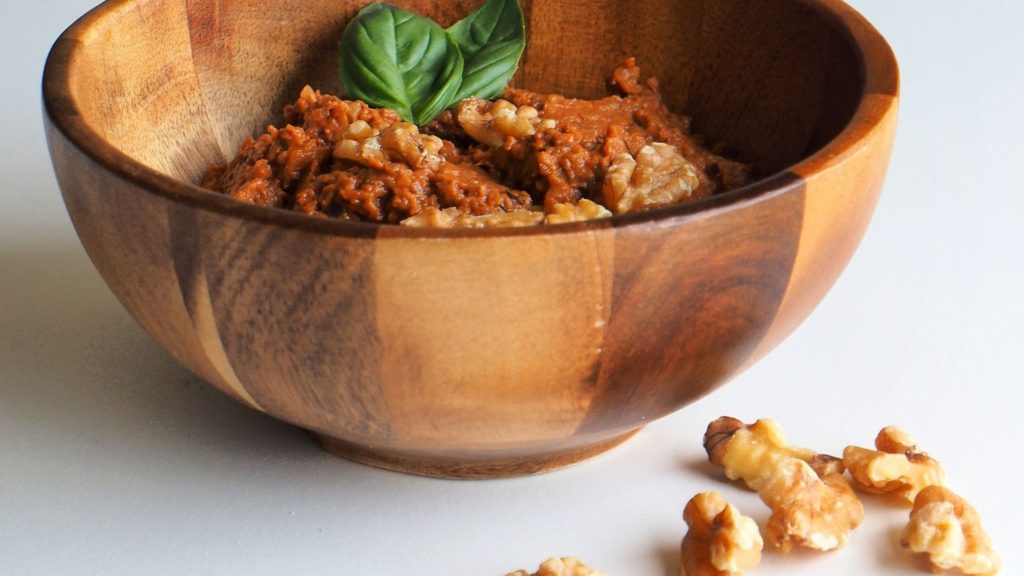
Walnuts are a nutritional powerhouse. While they do provide a source of protein, they are championed for being rich in healthy fats and contain higher levels of omega-3s and antioxidants than any other common nut. Walnuts not only look like mini-brains but contain essential nutrients to support good brain function.
Walnuts soft yet crunchy texture lends itself well to minced meat replacements and can help to keep you satiated. Use in addition to lentils as a minced beef alternative in cottage pies, tacos and spaghetti Bolognese.
NUTRITIONAL INFORMATION PER 100g
CALORIES: 679kcal CARBOHYDRATE: 7g PROTEIN: 15.2g FAT: 65.2g FIBRE: 6.7g
Purchase organic walnuts here.
PSUEDOGRAINS
9. Quinoa
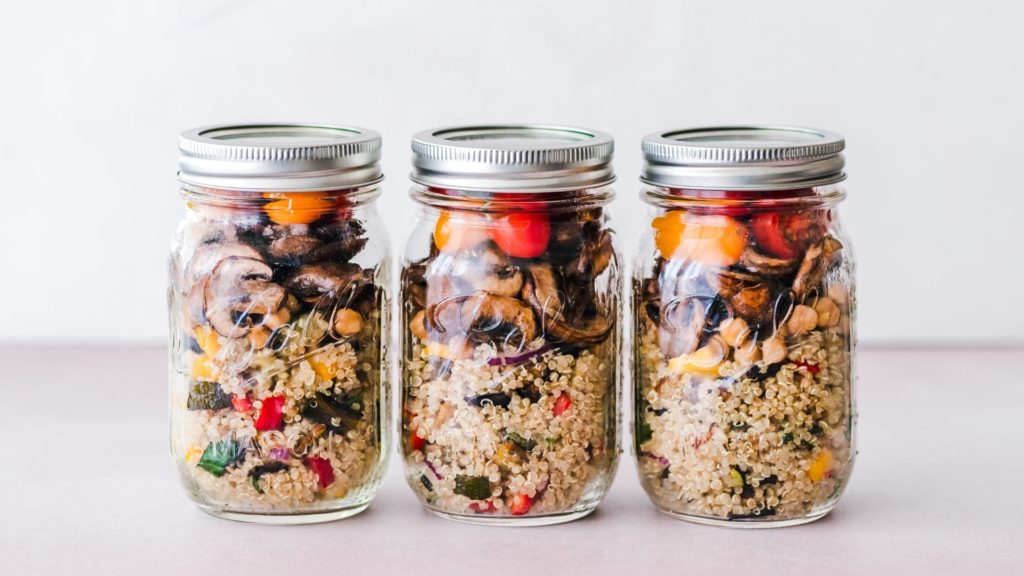
Quinoa is whole-grain and is often referred to as a pseudocereal or an ancient grain, it’s gluten-free and doesn’t grow from grasses like traditional grains. Technically quinoa is a seed but it is prepared and eaten in a similar way to grains. Quinoa, pronounced “keen-wah”, has been eaten for thousands of years in South America. While quinoa does not provide a direct meat swap, it is a highly recommended addition to a vegan diet as it is one of the few plant-based sources of complete proteins, meaning that it contains all nine of the essential amino acids. It has a neutral, slightly nutty, flavour.
Quinoa is a very versatile ingredient and can be used in hot dishes, cold salads, as a side like rice, to bake with or to form burgers. Use to add protein to a meal to create a balanced plate.
NUTRITIONAL INFORMATION PER 100g
CALORIES: 387kcal CARBOHYDRATE: 66.9g PROTEIN: 12.5g FAT: 6.3g FIBRE: 4.9g
VEGETABLES
11. Aubergine
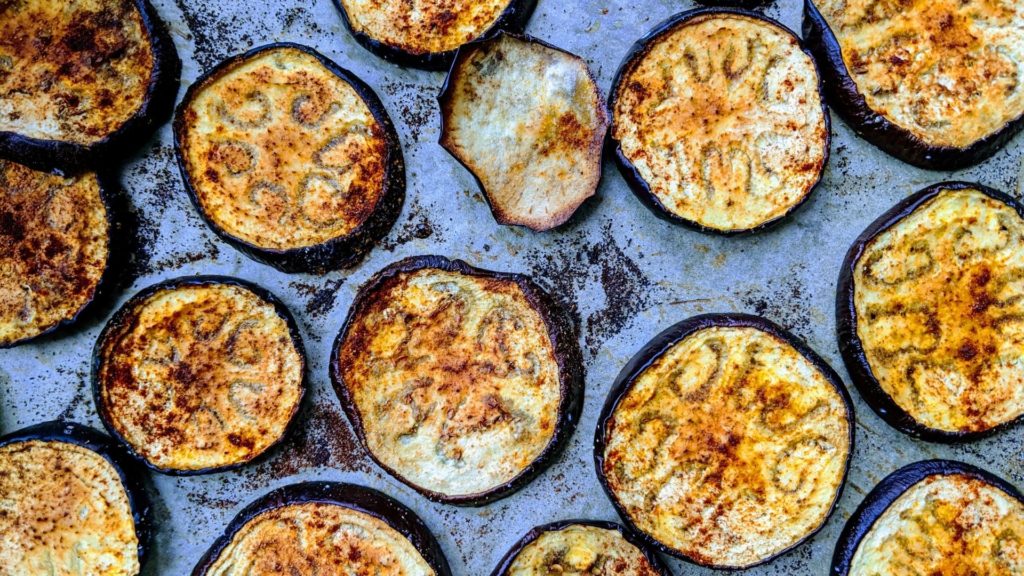
Aubergine, also known as eggplant, is technically a fruit but used as a vegetable which is native to Southeast Asia and a common ingredient in Mediterranean dishes. As opposed to meat, aubergine is low in protein, but nutrient-dense. Aubergine has a mild taste and soft flesh that lends itself well to many flavours.
Aubergine can be used in chunks in place of meat in stews or curries. However one of the most exciting uses for aubergine is as a plant-based replacement for bacon. When thinly sliced and combined with strong umami flavours aubergine can provide a surprisingly tasty alternative to bacon.
NUTRITIONAL INFORMATION PER 100g
CALORIES: 20kcal CARBOHYDRATE: 2.2g PROTEIN: 0.9g FAT: 0.5g FIBRE: 2.0g
12. Cauliflower
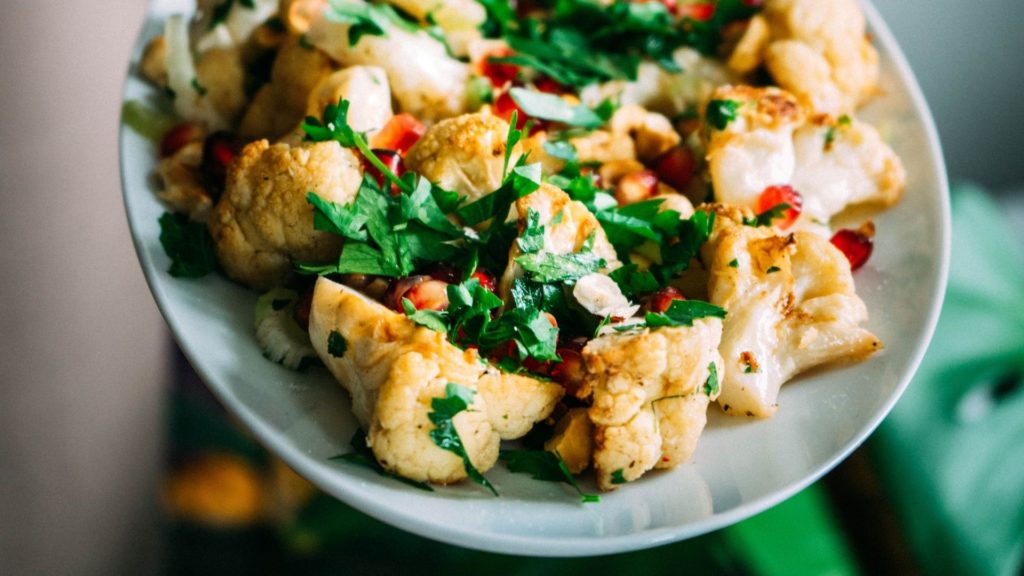
Cauliflower is a cruciferous vegetable and has become increasingly popular in its range of uses, featuring in many fashionable food trends. Cauliflower, whilst nutrient-dense, is low in protein, so if using as a direct replacement for meat be sure to add a source of protein elsewhere to your dish to maintain balance.
Cauliflower may not seem like an obvious meat swap, but because of it’s mild flavour and versatile texture it’s great used in place of meat in stews, curries and stir-fries. More fashionable options now involve baking and roasting. When broken into florets, cauliflower can be marinated and roasted to resemble chicken wings or thickly sliced and seasoned to provide a chunky vegan steak alternative.
NUTRITIONAL INFORMATION PER 100g
CALORIES: 38kcal CARBOHYDRATE: 3.0g PROTEIN: 3.6g FAT: 0.9g FIBRE: 1.8g
13. Mushrooms
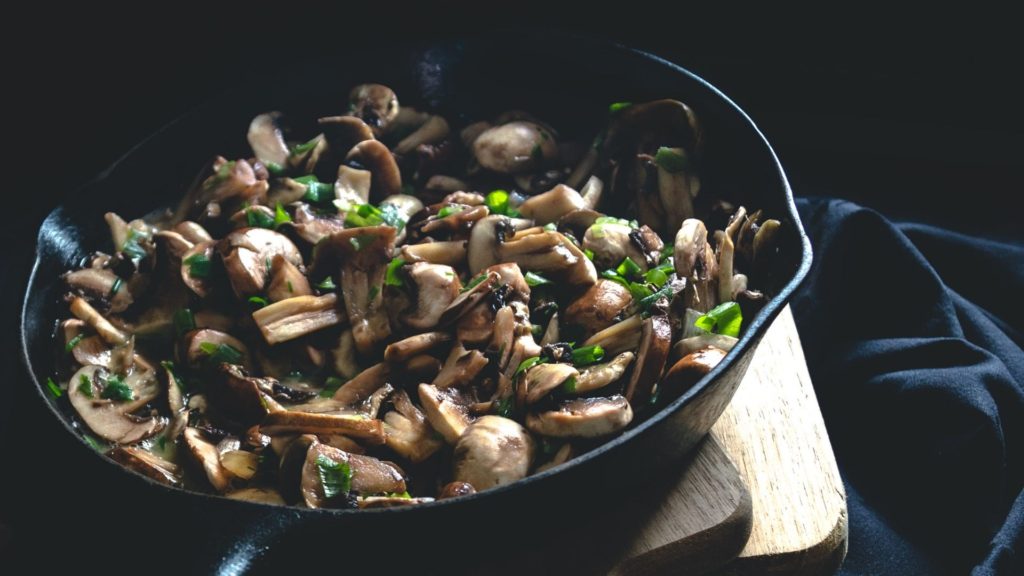
Mushrooms are technically not a vegetable but a type of fungi. Their unique umami flavour and meaty texture can provide an affordable plant-based solution to help veganise most red meat dishes. Mushrooms are brimming in vitamins and minerals and if grown in light provide an excellent source of vitamin D. Mushrooms are however notably low in fat and protein, so be sure to top up your plate with these macronutrients if using as a direct swap for meat.
Different varieties of mushrooms can be used in different ways. Large Portobello mushrooms are great in place of steaks, or smaller varieties of mushrooms can be ripped apart to resemble pulled meats. Mushrooms also work well to replace beef, particularly in dishes like Stroganoffs and Bourginons.
NUTRITIONAL INFORMATION PER 100g White Cup Mushrooms
CALORIES: 16kcal CARBOHYDRATE: 0.4g PROTEIN: 1.8g FAT: 0.5g FIBRE: 1.1g
FRUITS
14. Jackfruit
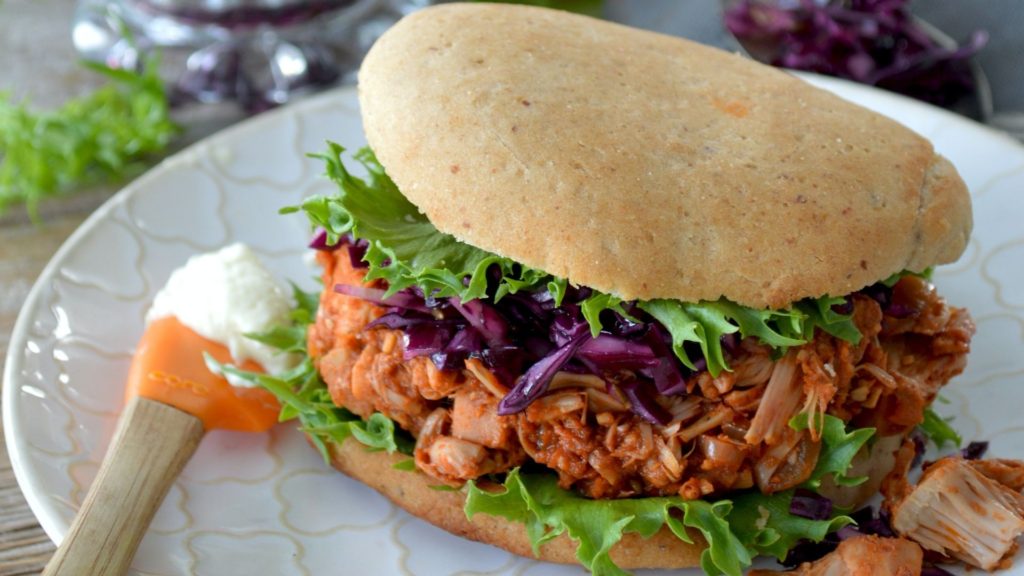
Jackfruit is an exotic fruit which has become a very trendy meat alternative. Although it is nothing new in Asian and Indian cultures where it has been eaten for thousands of years. Native to South India, jackfruit is the largest of all tree fruits. When ripe it has a very sweet taste, similar to that of mango, pineapple and banana. However, when used as a meat alternative it is the unripe fruit that is used which has a much more savoury flavour. The most exciting thing about jackfruit for plant-based eaters is in its texture. It’s stringy, fleshy chunks provide a remarkable replacement for shredded meats like chicken or beef and makes an incredible alternative for pulled pork that has the potential to sway any carnivore!
Jackfruit is low in protein, so if using jackfruit in place of meat be sure to add some protein in another area of your plate to keep your meal balanced. In Asian countries jackfruit is available fresh in abundance, however, in the UK it is commonly found conveniently pre-packed and prepared in tins and jars.
NUTRITIONAL INFORMATION PER 100g Brand: Biona
CALORIES: 86kcal CARBOHYDRATE: 19.5g PROTEIN: 1.5g FAT: 0.2g FIBRE: 6.0g
Purchase organic jackfruit here.
15. Avocado
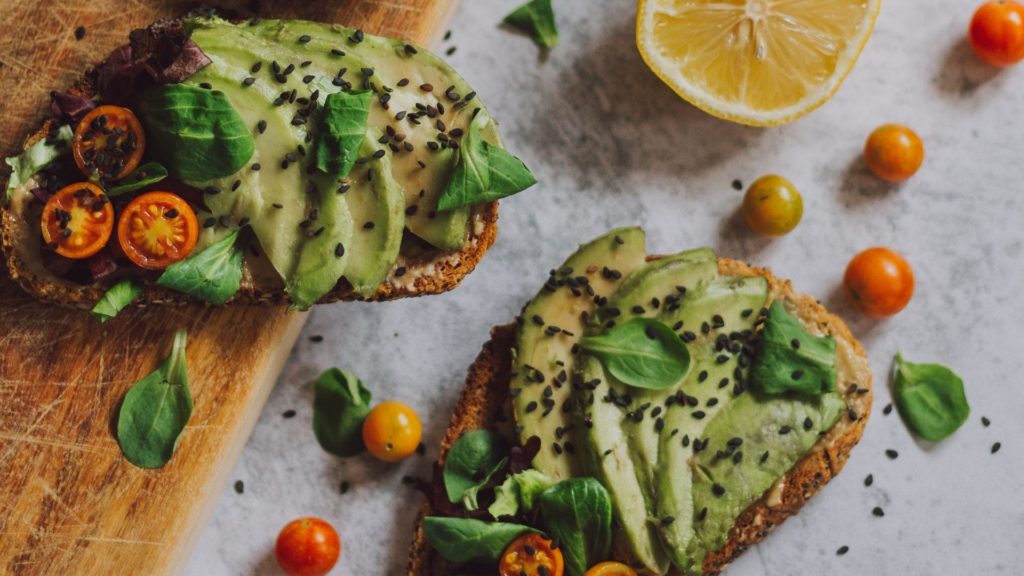
No vegan list is complete without the mention of an avocado! Avocados, technically a fruit, are particularly unique as, unlike other fruit, they are an excellent source of healthy fats. So if you are looking to create a well-balanced meal of carbohydrates, proteins and fats, consider avocado when choosing a healthy fat. Ripe avocados have a soft creamy texture, they are rich in fibre and contain even more potassium than bananas!
You can use avocado to replace meat like chicken in salads and wraps, on top of chillis, as guacamole with Mexican dishes or simply enjoy mashed onto toast.
NUTRITIONAL INFORMATION PER 100g
CALORIES: 160kcal CARBOHYDRATE: 8.5g PROTEIN: 2g FAT: 15g FIBRE: 6.7g
CREATIVE COMBOS
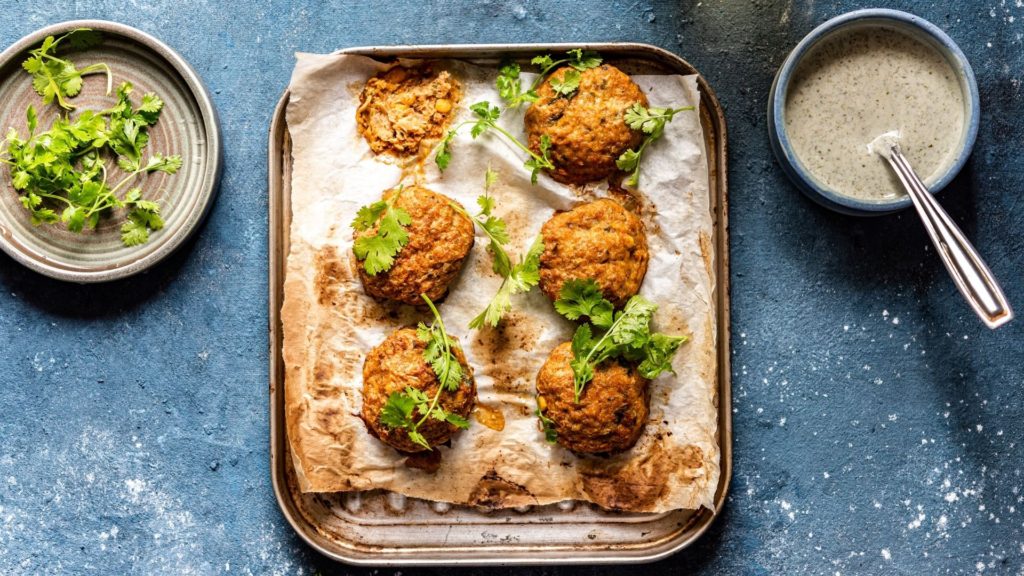
X. Burgers Sausages and Nut Roasts
Any combination of the above can be used to form your own homemade burgers and sausages or even meatballs (or rather, meatless balls!) especially when combined with a selection of complementary herbs, spices and seasonings. A mixture of vegetables, legumes and nuts are common in most good recipes and provide the perfect blend of flavour, texture and protein.
A joint of meat is traditionally the centrepiece of a roast dinner, however, it doesn’t have to be your only option. A classic nut roast has long been a popular vegan alternative as it is rich in protein and texture. Nut roasts combine a mixture of nuts, seeds, vegetables, legumes and even quinoa, making it a satisfying substitute.
VEGAN MUST-TRIES
Whether fully vegan, a part-timer, or simply inquisitive. I think the one thing that we can all agree on is that everyone can benefit by adding a larger variety of plants to our diets. I hope that these suggestions encourage you to look at meals in a different way and even inspire you to try something new. Don’t know where to start? I would highly recommend tempeh as one of the best meat substitutes for its high protein content and firm meaty texture. However, jackfruit’s uncanny resemblance to pulled pork is truly astonishing and high on the list of vegan must-tries!
Shop Ingredients
affiliate links – please read my disclosure here
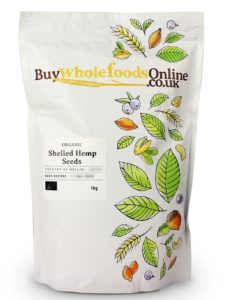
Hemp Seeds Shelled – Whole Foods
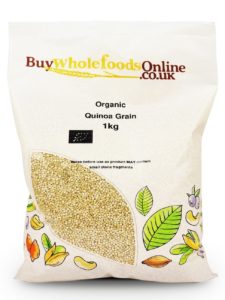
Quinoa – Whole Foods
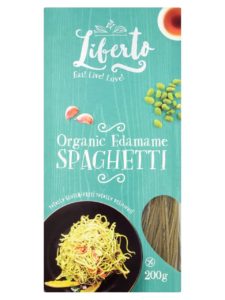
Edamame Spaghetti Pasta – Liberto
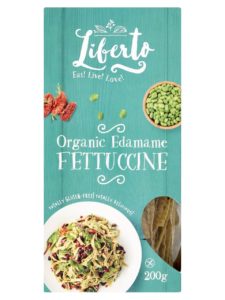
Edamame Fettuccine Pasta – Liberto
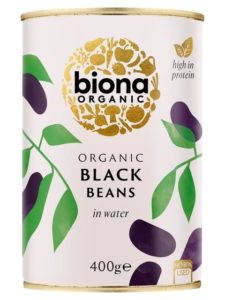
Black Beans – Biona
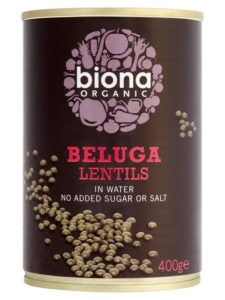
Beluga Lentils – Biona
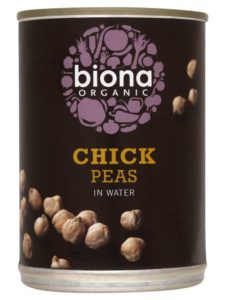
Chickpeas – Biona
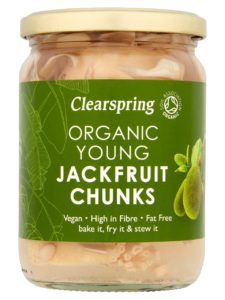
Jackfruit – Clearspring
Related Recipes
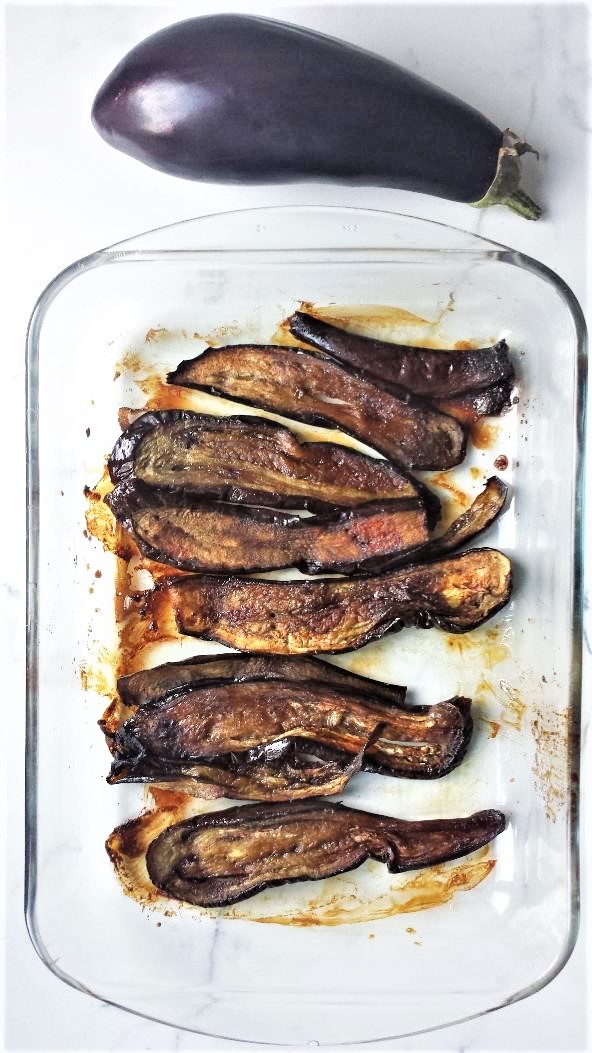
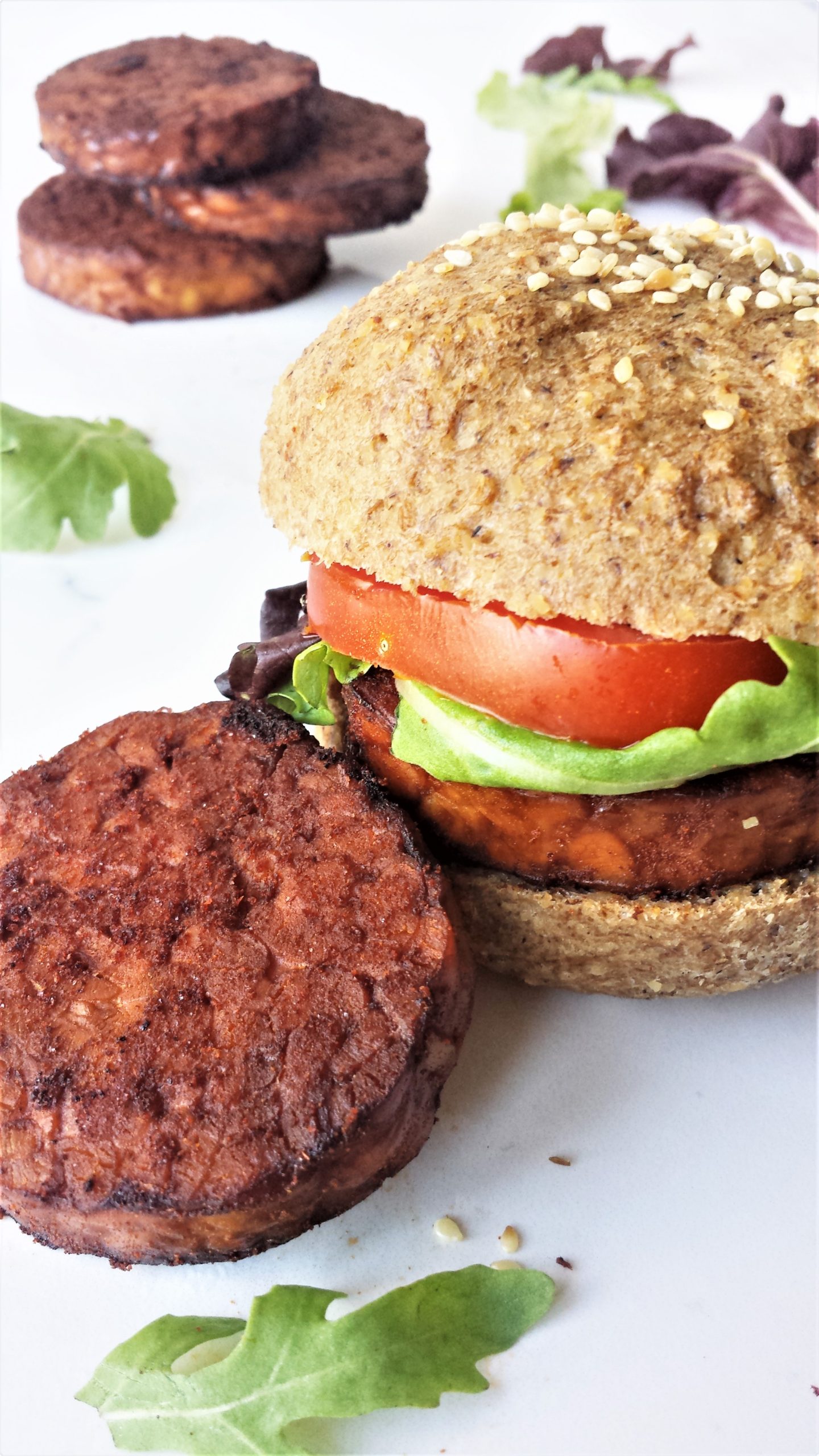
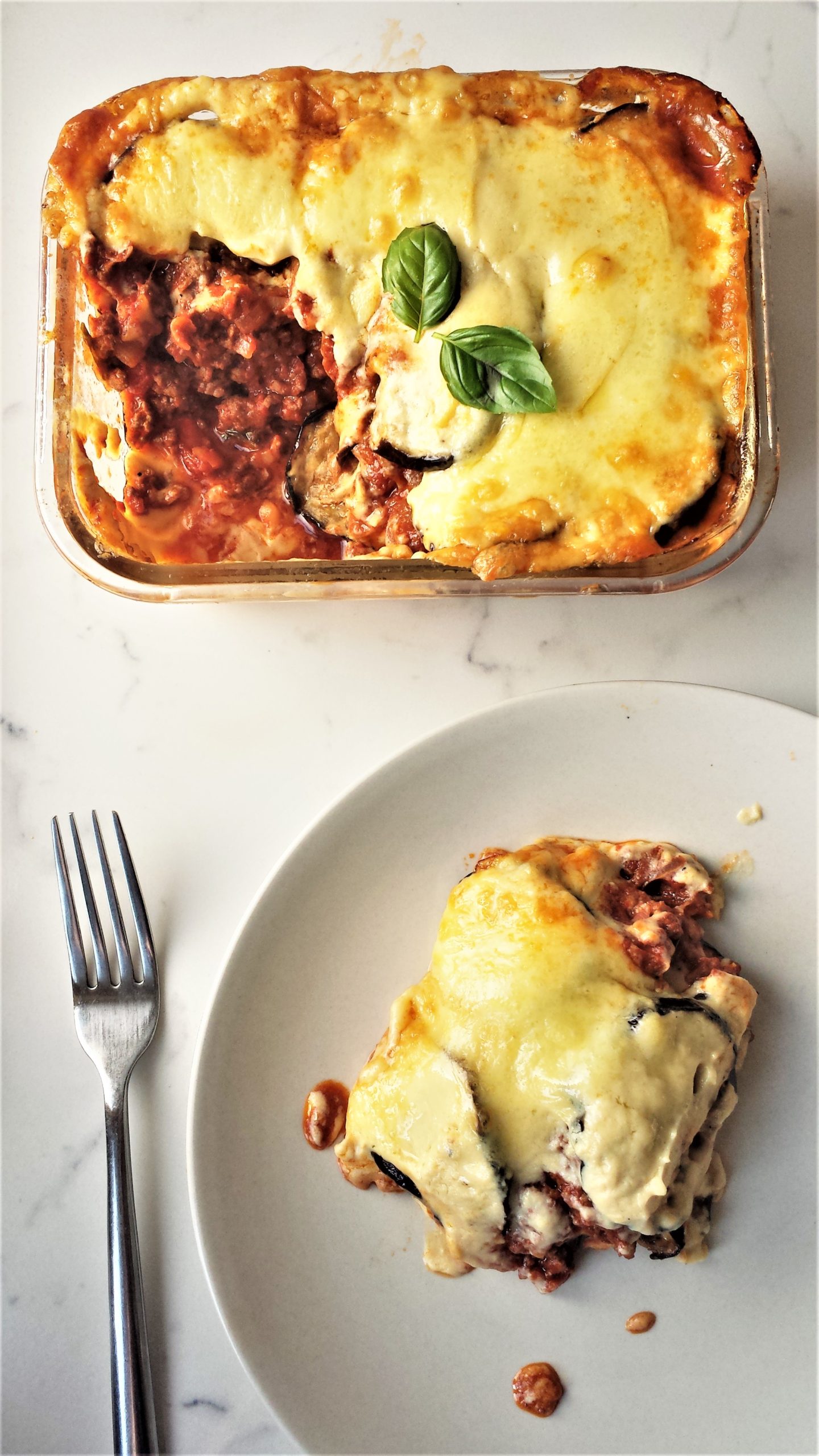

Leave a Reply